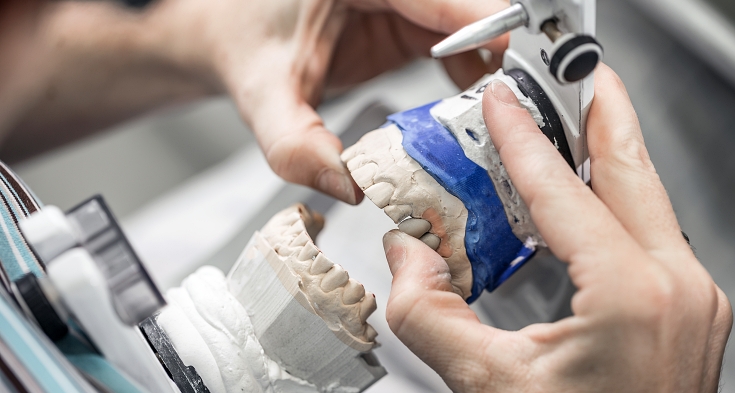
Receiving an Administrative Complaint from the Florida Board of Professional Engineers or the DBPR can be overwhelming. When your professional license is at risk, defending your engineering license becomes critical to protecting your livelihood and everything you’ve worked hard to build.
At Elevate Legal Services, PLLC, we offer professional, authoritative, and client-centered defense for engineers facing DBPR disciplinary action. Our goal is to protect your license and secure your professional future by providing strategic and reliable legal guidance.
Need immediate guidance? Call Elevate Legal Services, PLLCtoday on 561-770-3335 for a confidential consultation, or contact usto speak with an attorney about your case.
By reading this guide, you will gain a clear understanding of the statutes, especially F.S. 471.033, the common violations, the severe consequences, and the immediate, practical steps you must take to protect your career.
Understanding the Threat: Florida Statute 471.033 and Rule 61G15
 Your ability to practice engineering in Florida is strictly governed by state law. An administrative complaint is a formal allegation that you have failed to meet these professional standards.
Your ability to practice engineering in Florida is strictly governed by state law. An administrative complaint is a formal allegation that you have failed to meet these professional standards.
Florida Statute 471.033
This statute serves as the foundation for nearly all disciplinary actions against licensed professional engineers. It broadly outlines the grounds on which the Board can impose penalties.
Violations of F.S. 471.033are taken seriously and can lead to severe consequences, from substantial fines to license revocation. Violations are serious and include:
- Fraud or Deceit:Any act of dishonesty, including falsifying qualifications or project experience.
- Gross Negligence or Incompetence:Failing to exercise reasonable professional care in design, planning, or oversight, potentially risking public safety.
- Practicing Outside the Scope of Licensure:Taking on engineering responsibilities beyond your area of expertise or certification.
- Violation of Laws or Rules:Violating any provision of Chapter 471or any rule established by the FBPE or DBPR.
Florida Administrative Code Rule 61G15
The rules adopted by the Board set forth the detailed standards of conduct expected of every licensed engineer. Common rule violations often cited in complaints include:
- Improper Document Sealing and Signing:Failing to properly seal, sign, and date engineering documents as personally performed or adequately supervised.
- Inaccurate or Incomplete Recordkeeping:Failure to maintain complete and compliant engineering records.
- Misconduct Regarding Continuing Education:Rule 61G15-19.001(6)(s)specifically addresses misconduct related to license renewal. This often involves:
- Failing to complete the required Professional Development Hours (PDHs).
- Misrepresenting or falsifying continuing education credits or compliance documentation.
Common Allegations Facing Florida Engineers
While a complaint can cover many issues, most allegations fall into specific, frequently-cited categories. Knowing these helps you understand the immediate threat.
Here’s what that means legally:
1. Gross Negligence or Incompetence
This is one of the most serious allegations under F.S. 471.033. It involves failing to exercise the standard of reasonable care in your professional activities.
The complaint may allege errors in design, planning, or construction oversight that could potentially risk public health, safety, or welfare.
Proving that you met the accepted standard of care is paramount to a successful defense in these cases.
2. Continuing Education (CE) Violations
A common technical violation is addressed specifically in Rule 61G15-19.001(6)(s) regarding misconduct related to CE hours.
It covers failing to complete the required Professional Development Hours (PDHs) before license renewal or reactivation.
Crucially, it also covers misrepresenting or falsifying your records of continuing education compliance, a common point of focus for DBPR investigators. Here you can check the continuing educationrequirements.
3. Improper Sealing and Signing of Documents
Florida law requires specific procedures for sealing, signing, and dating plans and reports that you have personally prepared or adequately supervised.
Errors or omissions in this process, or signing documents not personally reviewed, can directly lead to a formal DBPR complaint.
Your attorney can review your documentation process to identify potential defenses against these technical allegations.
The Consequences: Why Immediate Action is Critical
The penalties resulting from a proven violation are designed to protect the public, but they can devastate a professional career.
Don’t underestimate the long-term impact of an administrative complaint.
What could you lose?
- License Suspension or Revocation:The complete or permanent loss of your ability to practice in Florida.
- Substantial Fines:Financial penalties that often amount to thousands of dollars per single violation.
- Probation:Limiting your practice under strict conditions, requiring monitoring, and demanding routine reporting.
- Public Reprimands:A formal action that permanently blemishes your professional record and reputation.
Taking immediate, proactive legal steps is the only way to minimize or entirely avoid these life-altering consequences.
A Strategic Roadmap: Defending Your Engineering License
The administrative process is structured, and mistakes in your initial response can be costly. Our client-centered approach provides a practical, step-by-step strategy for defense.
Your 4-Step Legal Process
- Do Not Respond to Investigators Alone.If you receive a Notice of Investigation or an Administrative Complaint, your first action must be to retain counsel. Do not attempt to explain your side to the DBPR investigator without an attorney present, as any statement you make can be used against you.
- Comprehensive Review and Evidence Gathering.We immediately analyze the specific statutes and rules cited. We help you gather all relevant documentation, including project files and continuing education records, to build a compelling defense.
- Strategic Election of Rights.You must select how you wish to proceed, typically by choosing between an Informal Hearing or a Formal Hearing. We will advise you on the election that maximizes your chances of a favorable outcome.
- Aggressive Representation in Hearings.Whether negotiating a settlement or litigating your case before an Administrative Law Judge (ALJ), we challenge the evidence presented by the state. We vigorously defend your professional reputation, seeking dismissal or a significant reduction in penalties.
Choose Credibility: Why Elevate Legal Services, PLLC?
Defending your engineering license requires a precise combination of legal expertise and technical knowledge of Florida’s regulatory standards.
At Elevate Legal Services, PLLC, our voice is authoritative, professional, and reassuring because we know this process intimately.
We provide a solution-oriented defense, offering deep knowledge of DBPR procedures and an empathetic approach to your professional crisis.
We understand the stakes involved.
Frequently Asked Questions (FAQs)
 1. What is the difference between F.S. 471.033 and Rule 61G15?
1. What is the difference between F.S. 471.033 and Rule 61G15?
F.S. 471.033 is the statute that outlines the broad legal grounds for disciplinary action (e.g., fraud, negligence). Rule 61G15 is the detailed administrative rule that sets forth the specific standards of professional conduct and practice (e.g., proper sealing, CE requirements). Both are used to support disciplinary complaints.
2. How long do I have to respond to an Administrative Complaint?
You typically have 21 daysfrom the date you receive the Administrative Complaint to submit your Election of Rights form to the DBPR. Failure to respond within this deadline can result in default penalties, including an immediate license suspension or revocation.
3. Will my case automatically go to a public hearing?
Not necessarily. If you choose an Informal Hearing, the Board may make a final decision based on the written record and any settlement negotiations. A Formal Hearingis only required if you contest the material facts of the complaint, which is then heard by an Administrative Law Judge (ALJ).
4. What are the most common consequences I might face?
The most frequent disciplinary actions include fines, mandated probation (often requiring supervision), and a public reprimand. The most severe consequences—license suspension or revocation—are reserved for cases involving gross negligence or criminal conduct.
5. Can a defense attorney help if the evidence is against me?
Yes. An attorney can still provide a critical defense by challenging the interpretationof the evidence and presenting mitigating circumstances (factors that lessen the severity of the violation). We aim to negotiate a settlement that avoids a license suspension or revocation.
6. Will the complaint be public record?
Yes, once an administrative complaint is filed, it generally becomes part of the public record maintained by the DBPR. This is why a swift, strategic defense aimed at achieving dismissal or a minimized penalty is so crucial for protecting your professional reputation.
Defending Your Engineering License: Safeguard Your Professional Future
Facing a DBPR Administrative Complaintis a severe professional challenge, but you do not have to fight this battle alone. The integrity of your engineering career depends on a decisive, well-informed, and strategic defense.
At Elevate Legal Services, PLLC, we provide the authoritative, reassuring guidance you need to navigate this process successfully. We are committed to protecting your license and reputation.
Don’t delay. The clock starts ticking the moment you receive the complaint.
Contact Elevate Legal Services, PLLC today at 561-770-3335 or fill out our secure form to schedule a confidential consultation. Our team specializing in defending your engineering license is ready to help you safeguard your professional future.





